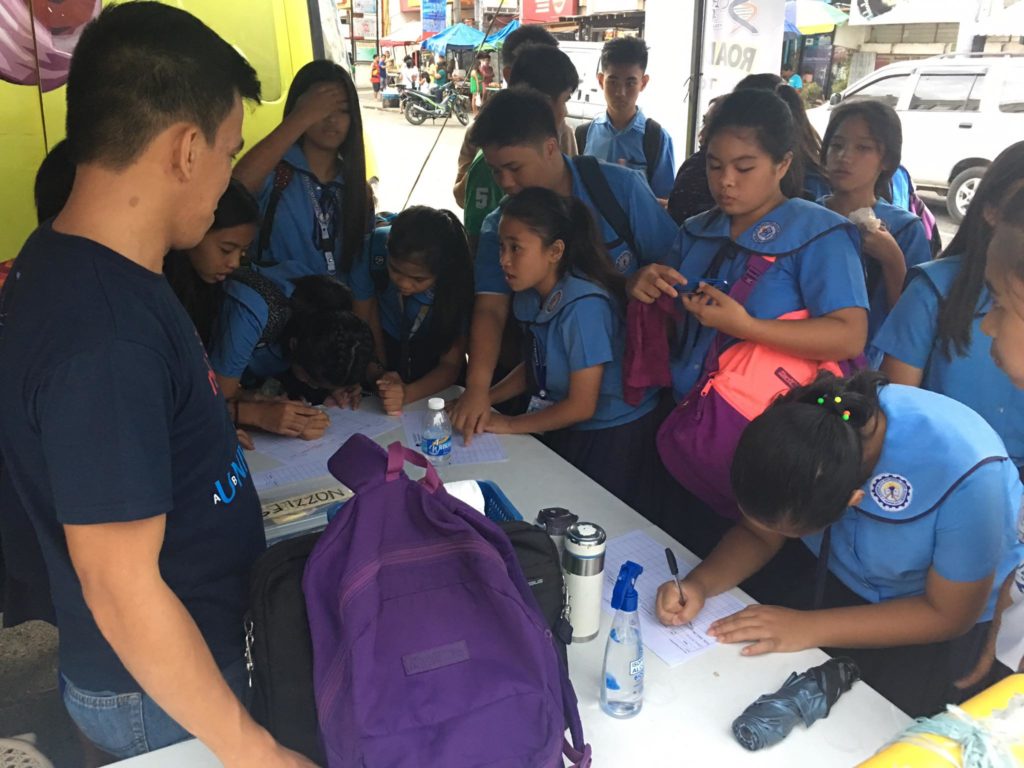
CAUAYAN CITY, Isabela – Around 750 students and teachers from Isabela experienced a cool and fun way to learn Science when the Department of Science and Technology’s (DOST) Explorer Bus made a five-day stopover there last August 14-18, 2017.
Through the joint efforts of the City Government of Cauayan, headed by Mayor Bernard Faustino M. Dy, the DOST-Region 02 and Provincial S&T Center-Isabela, Science Explorer Bus hit the roads of Cagayan Valley for the second time.
According to Science Research Specialist II Mark Ivan Robles of DOST-SEI, “This project aims to encourage students to take science and technology courses.” Robles also emphasized that we lack scientist as we only have 200 out of 380—the number needed in every million population in order to help in our country’s development.
Students were also allowed to attend classes inside the 30-seater bus as they provided storytelling activities and face-to-face interactions with scientists and inventors, which allowed learning more interactive and engaging other than using the typical textbook lecture lessons that most of the children shy away from.
Engr. Marcelo G. Miguel, Provincial S&T Director (PSTD) of PSTC-Isabela, said that through this project, the principle of science and technology can be imparted to students through lecture and application and experience on how science and technology works. “It is better that they learn what science is at a young age since it is seldom demonstrated through laboratory activities.” Miguel also emphasized the difference of classroom discussions and interactive learning sessions through the Science Explorer bus.
The country’s first and only mobile science laboratory, the Science Explorer provided a mobile interactive S&T learning facility for schools with inadequate amenities or with no science laboratories across the country. Bringing science to life, the Science Explorer aimed to inspire science and mathematics interest using amusing and exciting hands-on learning experience with audio-visual equipment and instructional materials, including a growing collection of modules tailor-fitted to elementary and high school students.
Included topics ranged from space science, creativity and invention, disaster preparedness and climate change, robotics, marine science, and engineering. Students also got a taste of laboratory science, as lab equipment were available inside for experiments that they enjoyed. (Angel Gorospe, PSTC Isabela)
